12 pictures that capture the heartache caused by Europe's refugee crisis
Ban Ki-moon said he was 'shocked' at the 'unacceptable' treatment of asylum seekers
As the story of Europe's refugee crisis goes on, and after a summer that saw hundreds of thousands of people risking their lives to enter the continent, the sheer human cost of the crisis is becoming bigger.
On the borders of Hungary and Serbia, thousands of people meet at bottlenecks, desperate to get further into Europe.
Today, hundreds of people broke through police lines at two border crossings between Serbia and Croatia, with people fainting and one man suffering a heart attack in the ensuing stampede.
Despite the horrific conditions, thousands of people, including young children, continue to take the risk, many of them fleeing war in their home countries.
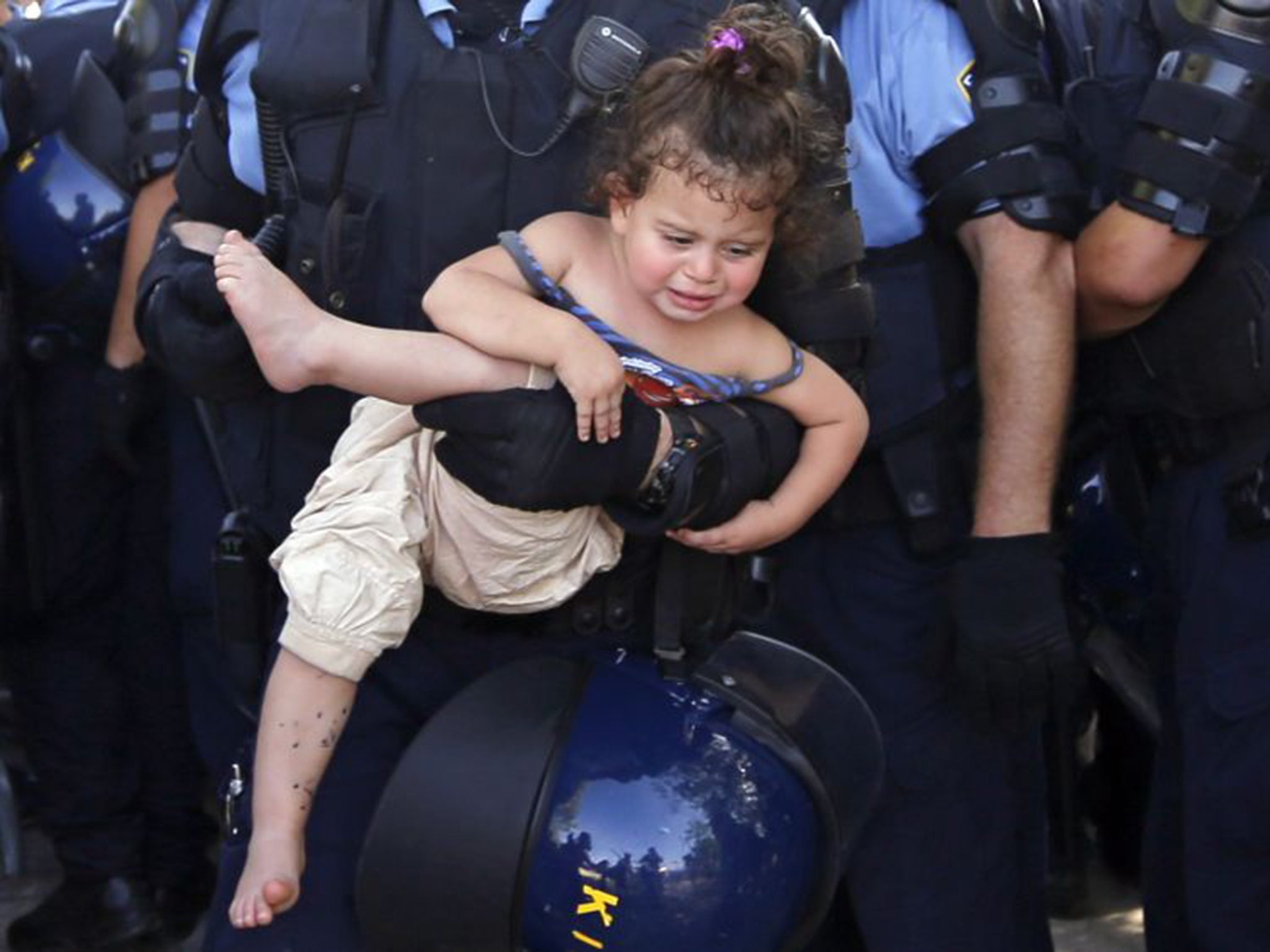
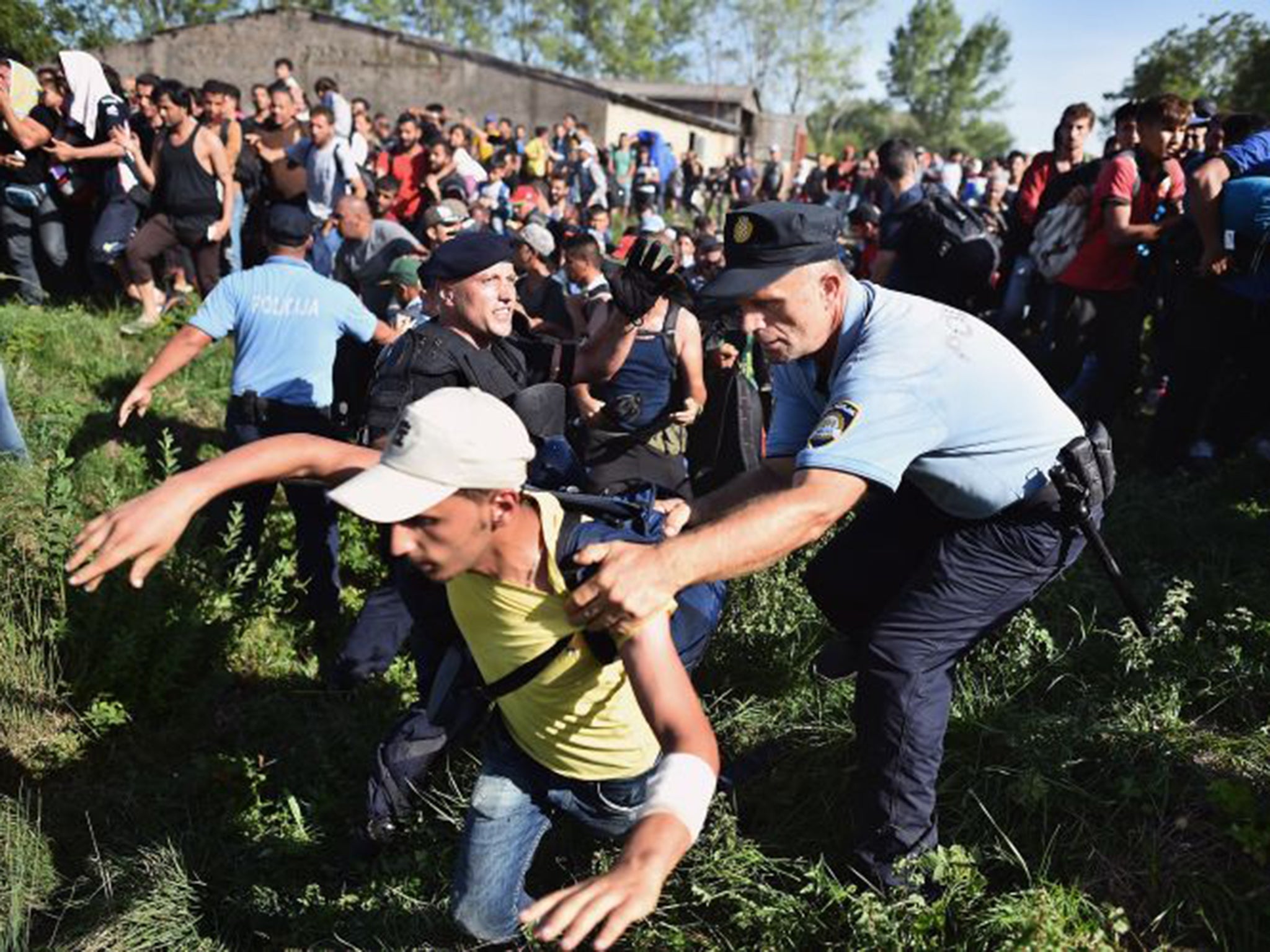
UN secretary general Ban Ki-moon condemned the Hungarian border police, saying: "I was shocked to see how these refugees and migrants were treated. It's not acceptable."
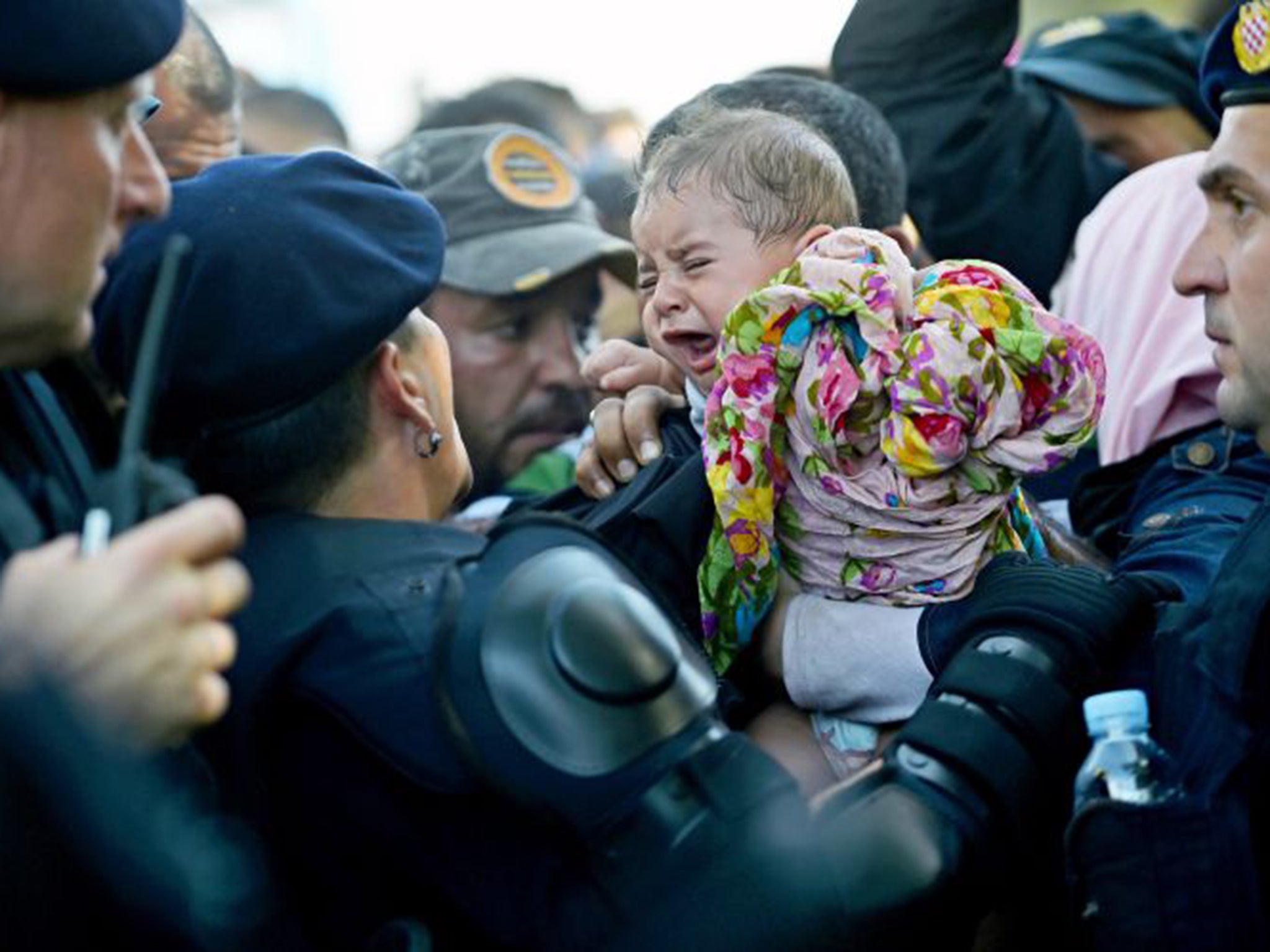
While the crisis has only been getting worse in Europe over the last few months, the border crossings of Serbia, Hungary and Croatia have become flashpoints.
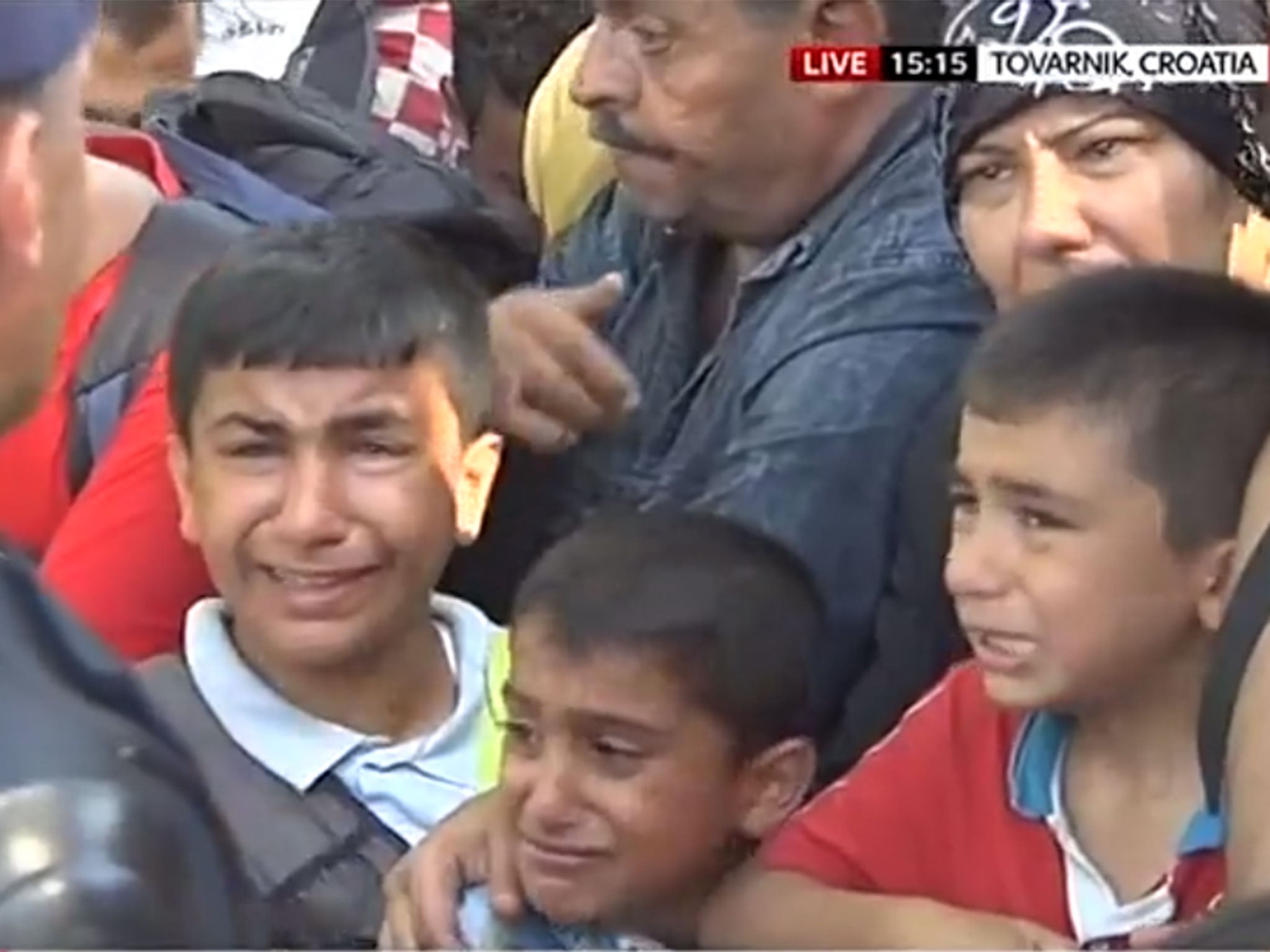
Ahmad, a man from Idlib, a Syrian city which has been ravaged during the civil war, spoke to The Independent after he had implored Hungarian border guards to let him cross the border.
"We want to come in a peaceful way but these people will be hard to control," he said.
"We already died once in our country, we don't want to die again. If they saw Syria they would open the whole country for us. We want to know freedom."
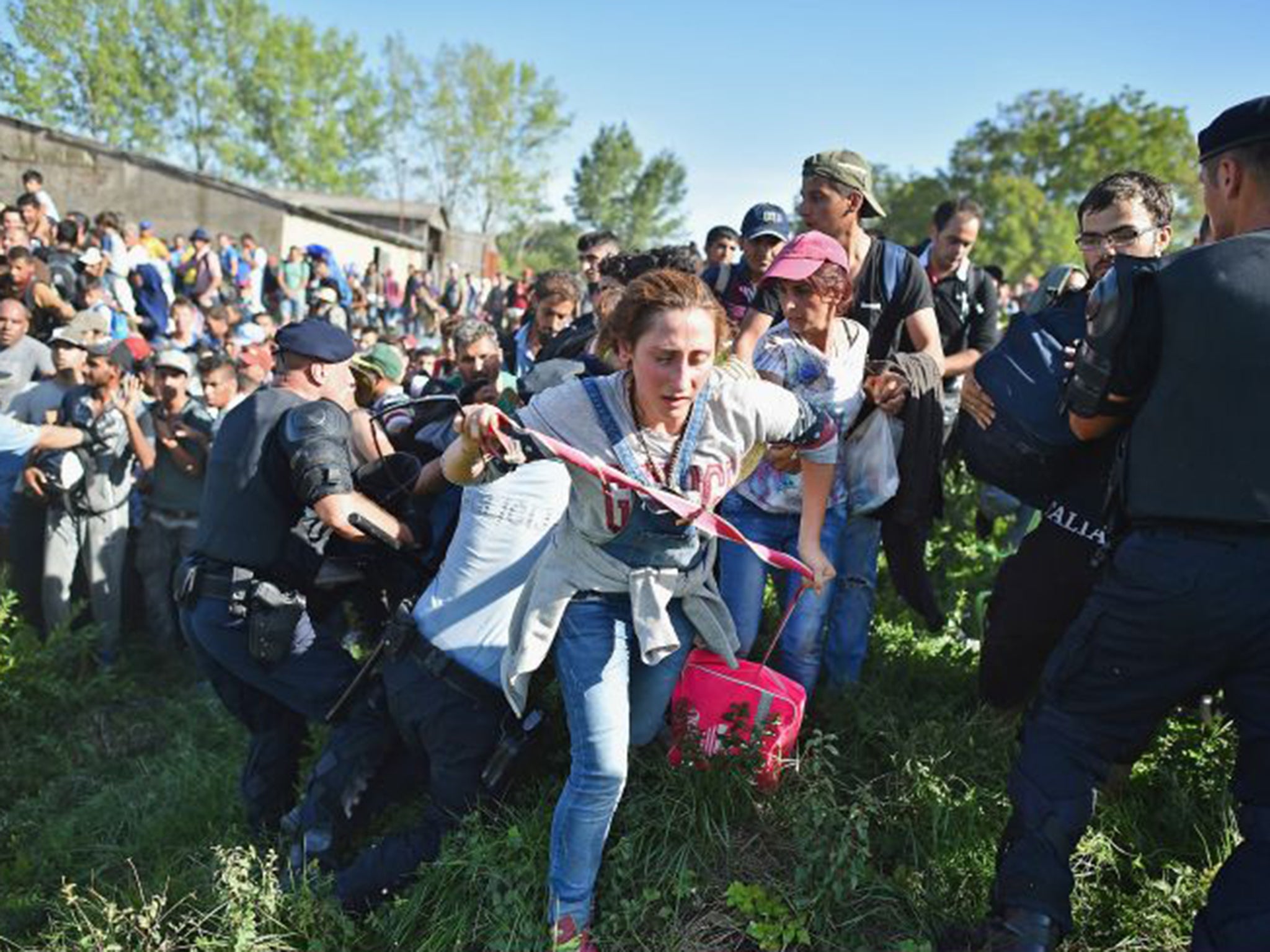
Hungary's prime minister, Viktor Orban, is keen to keep refugees out of his country and out of Europe as a whole. At the border, some young men took their anger out by hurling rocks and bottles at the police.
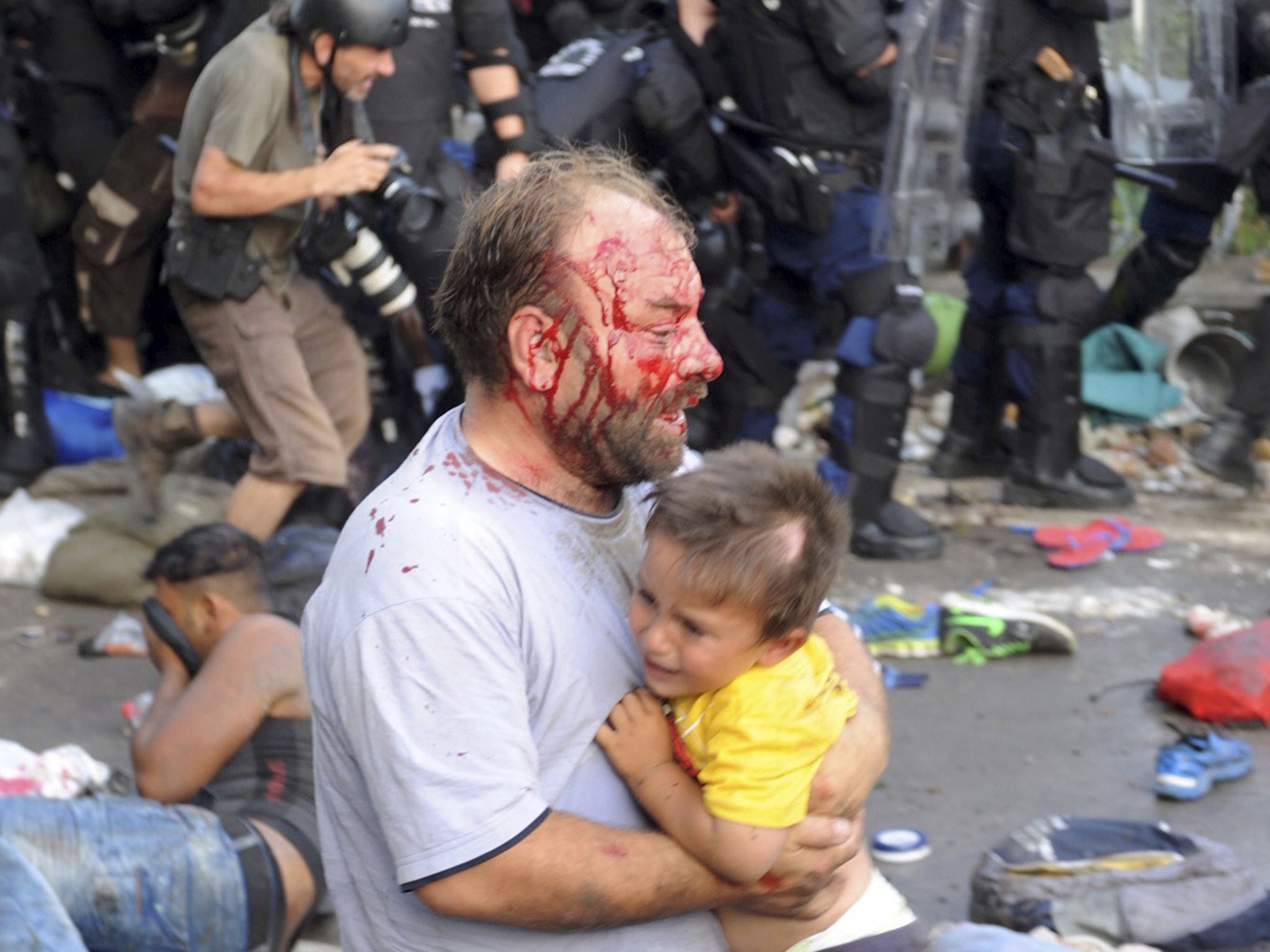
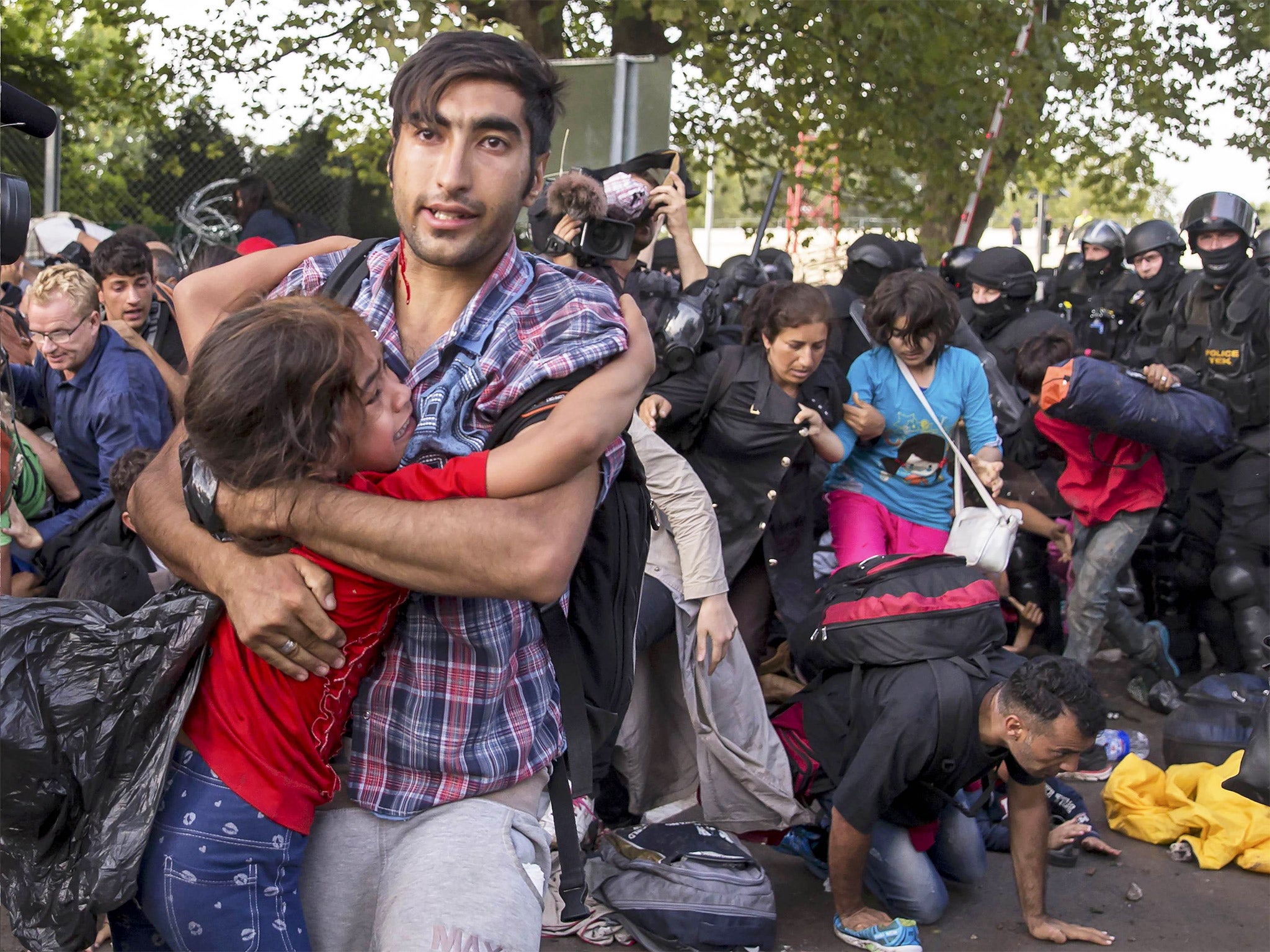
Hungarian police responded by firing tear gas into the crowds of refugees, dispersing the stone-throwers but incapacitating the already weak refugees.
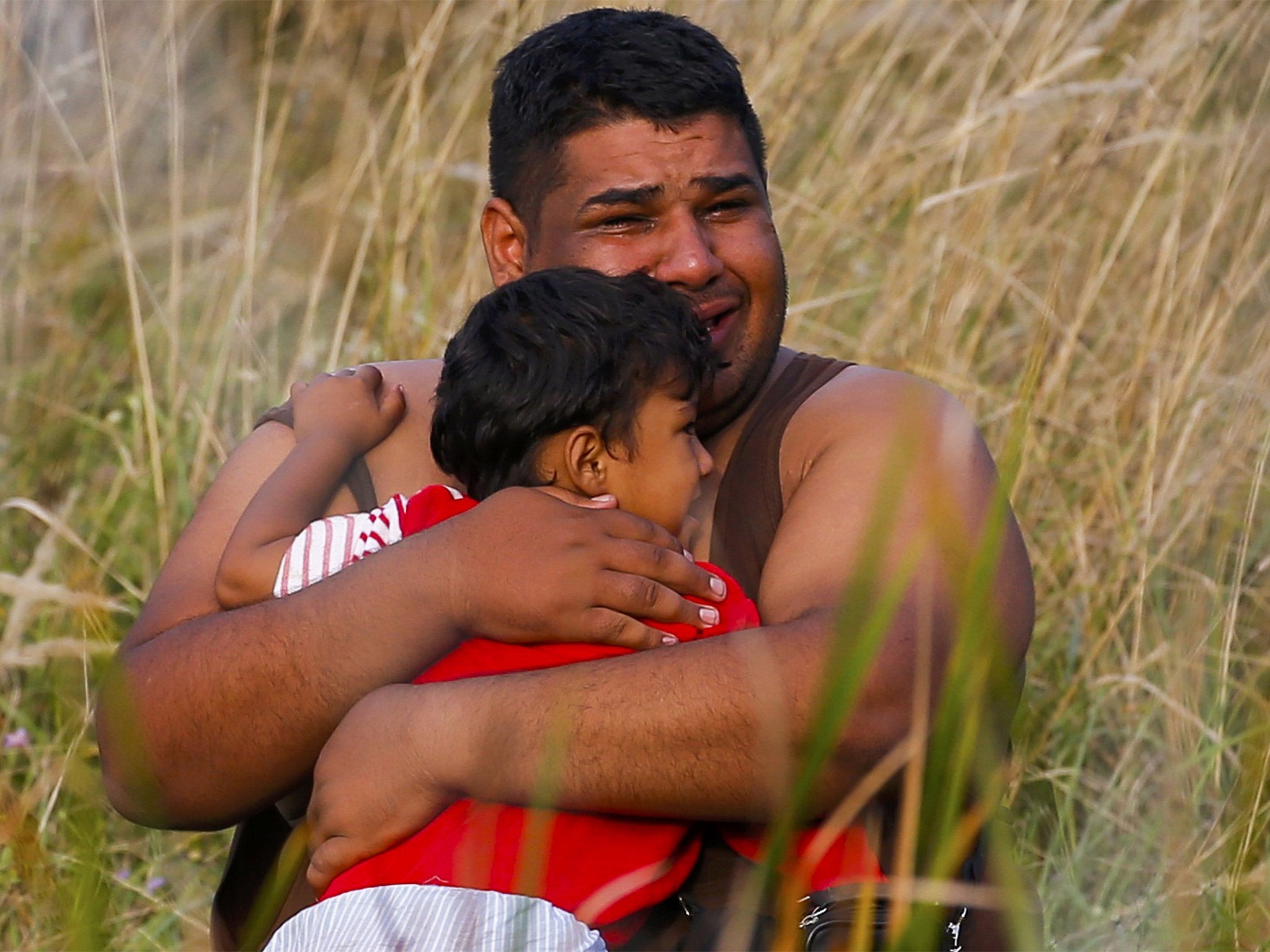
Following Hungary's crackdown on refugees, Croatia has become the new route of choice for many. Officially, Croatia has said that anyone entering the country must apply for asylum or be considered illegal immigrants.
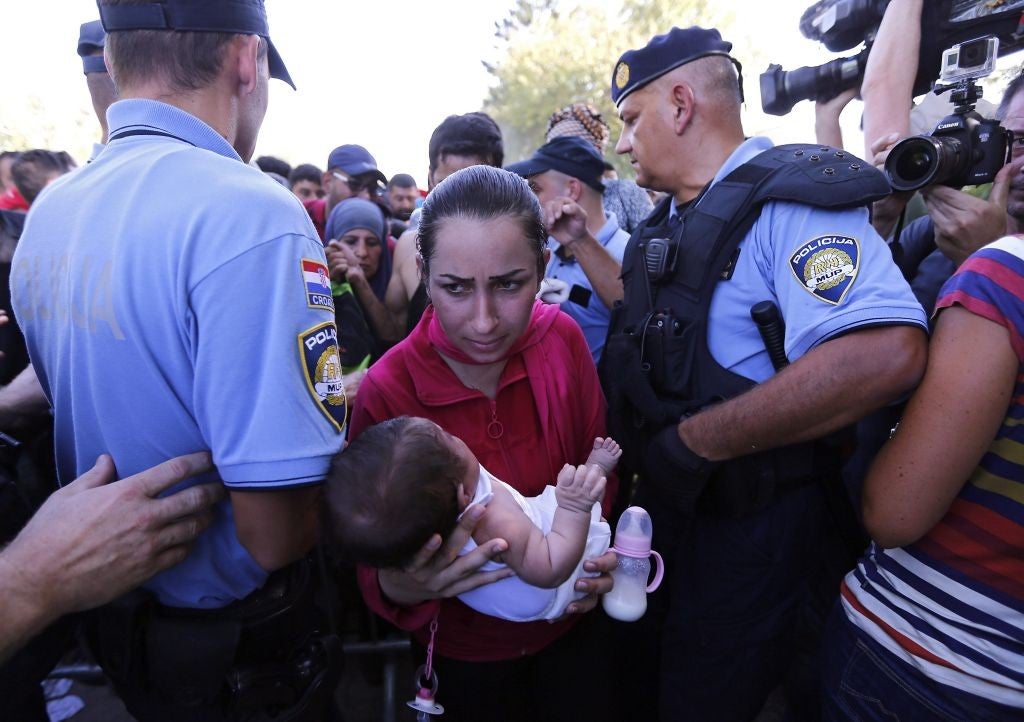
However, Prime Minister Zoran Milanovic has said he will allow refugees to pass through the country into western and northern European countries.
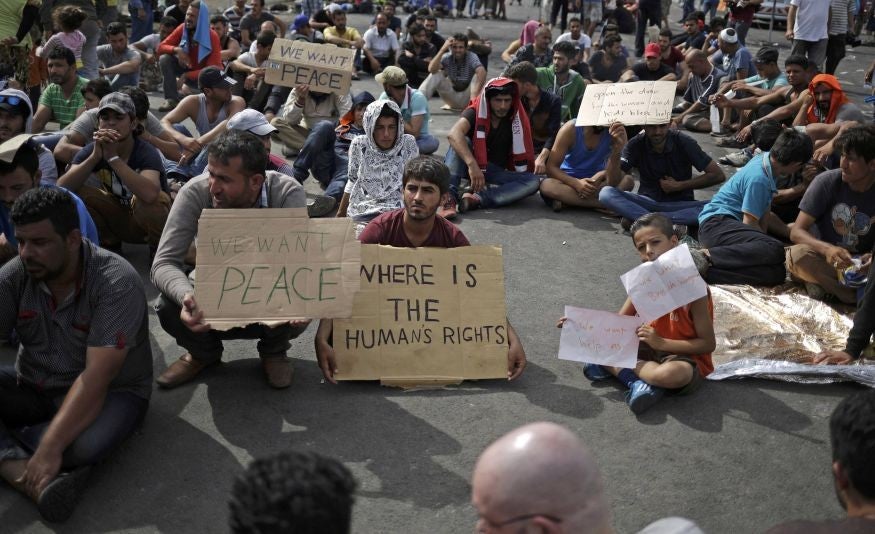
Meanwhile, the UK looks poised to accept more refugees hoping to come here. David Cameron announced that the UK will take 20,000 refugees by 2020.
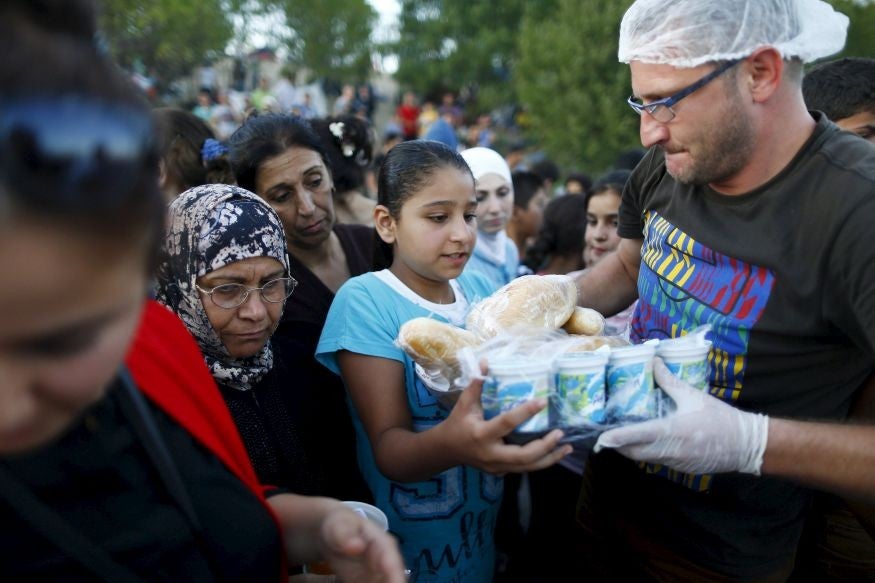
All will come from refugee camps bordering Syria, as the government is reportedly concerned that accepting those already in Europe would just encourage more to make the dangerous journey.
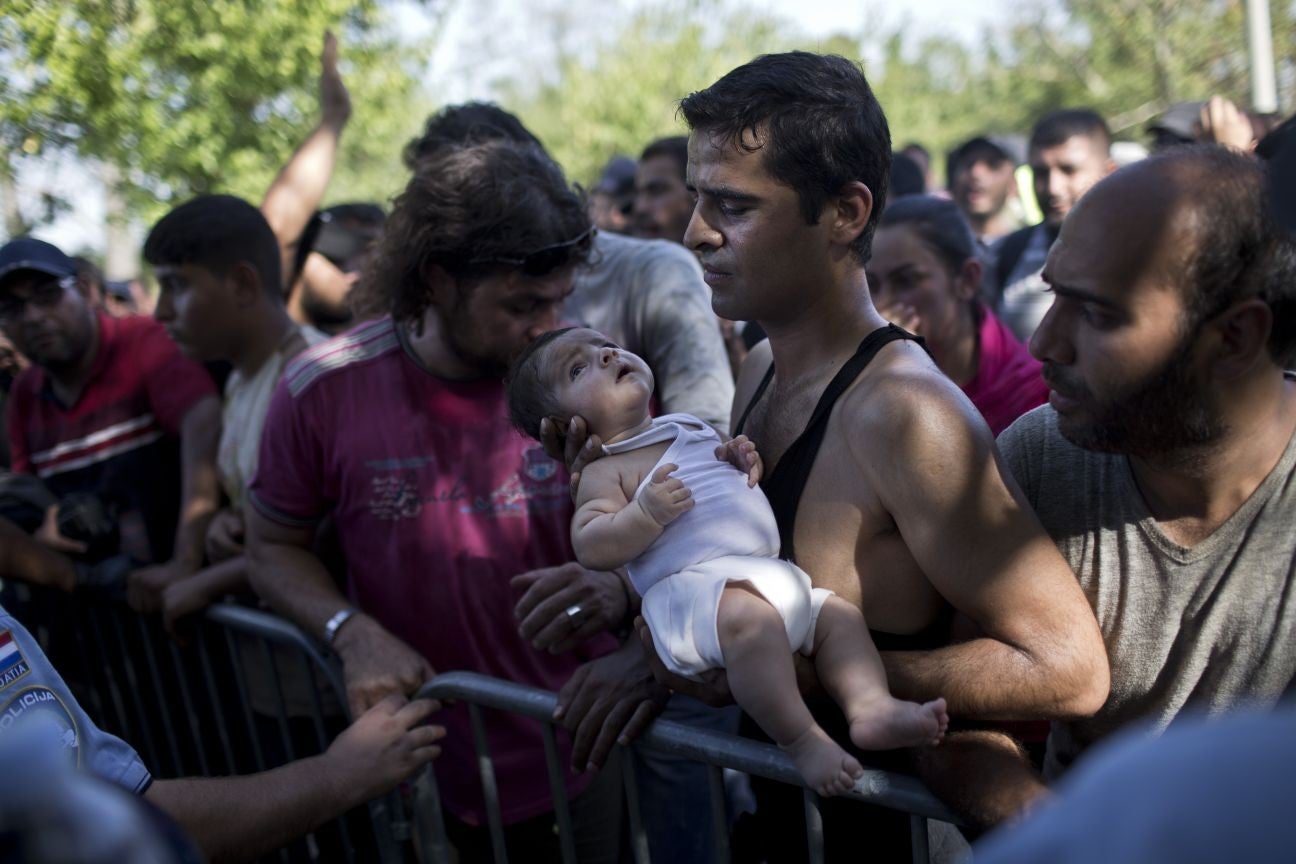
However, this figure is a fraction of the number of people that have arrived in Europe in the last few months. For many of them, the crisis is far from over.
Join our commenting forum
Join thought-provoking conversations, follow other Independent readers and see their replies
Comments
Bookmark popover
Removed from bookmarks